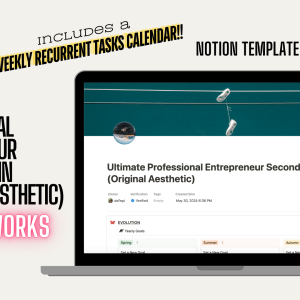Build Authority with SEO AI

Not too long ago, building authority online as a coach meant writing blog posts and hoping Google’s algorithm would notice you. But today, the game has changed: SEO AI has entered the picture.
More and more people are skipping the search bar entirely. Instead of Googling “How do I prepare for my first coaching session?”, they’re asking ChatGPT, Perplexity, or Gemini. Instead of scrolling through ten blue links, they’re reading the AI-generated answer, and often stopping there.
If you’re a coach, this presents both a challenge and an opportunity. The challenge is obvious: if your name, your content, or your coaching insights aren’t mentioned in those AI-generated answers, you risk becoming invisible. The opportunity is equally clear: if you learn how to optimize your content for both traditional SEO and AI search (AIO, or AI Optimization), you can become the coach whose voice is consistently quoted, recommended, and trusted.
This isn’t chasing trends. It’s a new way of building authority, where being findable by both humans and machines is the foundation of long-term growth.
Why Visibility Isn’t Enough Anymore
Most coaches don’t struggle with expertise. They know how to help people. The real struggle is visibility. But visibility on its own is fragile. A viral Instagram Reel can make you visible for 24 hours. A clever tweet might circulate for a week. Even a paid ad campaign can dry up the moment you stop funding it.
Authority is different. Authority is visibility with weight. It’s when people don’t just stumble upon you, they trust you. They quote you. They refer you to others because your voice rings true.
And authority is built through consistency, clarity, and connection. That’s where SEO and AI optimization come in. They’re not magic buttons, but they do ensure that your authority doesn’t remain hidden in a corner of the internet. They amplify it.
SEO: The Classic Engine of Discoverability
Let’s start with SEO, as it remains the cornerstone. Despite the rise of AI search, Google isn’t going anywhere. Millions of people still type their questions into that search bar every day. And when they do, coaches who understand SEO are far more likely to be discovered.
The beauty of SEO is its compounding power. A blog post you publish today doesn’t disappear tomorrow. If optimized well, it can continue to attract readers (and potential clients) for years.
For coaches, SEO works best when you focus on:
Long-tail keywords. These are specific, intent-driven phrases, such as “career coaching for midlife professionals,” rather than broad, competitive terms like “life coach.” Long-tail keywords attract fewer people, but the ones they attract are more likely to convert into clients.
Evergreen content. Answer questions your clients will be asking five years from now, not just what’s trending this week. Burnout, confidence, leadership transitions, and imposter syndrome: these aren’t going away anytime soon.
Readable structure. Use clear subheadings, short paragraphs, and direct language. This makes your content digestible for both humans and search engines.
The way you structure SEO content also makes it more AI-friendly.
AI Search: The New Gatekeeper of Authority
When someone asks an AI assistant a question (“What are the benefits of career coaching?” ), the AI doesn’t magically know the answer. It scans numerous sources across the web, identifies trustworthy explanations, and compiles them into a cohesive narrative.
This means that your online authority now depends on whether AI can easily find, interpret, and accurately quote your work.
In practice, this requires slightly different habits from traditional SEO. AI models don’t just favor keywords; they also prioritize clarity, quotability, and signals of authority.
For example, if you write:
“Burnout coaching is not about teaching people to work harder. It’s about reshaping how they respond to stress so work no longer depletes them.”
That line is memorable and quotable. It’s far more likely to show up in an AI-generated answer than:
“Burnout coaching helps individuals deal with stress.”
Do you see the difference? AI tools prefer clear, strong statements that they can lift directly. Which means writing in a sharp, definitive voice isn’t just good for your readers; it’s good for your discoverability in AI-driven search.
How SEO and AI Work Together
Think of SEO as your foundation and AI search optimization as your amplifier. They aren’t rivals; they’re two parts of the same ecosystem.
SEO ensures your content is accessible. Without it, neither Google nor AI will surface your work.
AI optimization ensures your content is recognizable. It’s not enough to exist online; you need to be the kind of voice AI tools want to quote.
When combined, they create a system where your content is:
Discoverable in traditional searches.
Recommended in AI-generated answers.
Trusted by human readers once they land on your site.
That’s authority in action.
The risks
Overusing AI Writing Tools
Let’s talk about AI writing assistants for a bit. As a coach, your most precious resource is time. Writing long-form, SEO-friendly, AI-optimized blog posts takes hours you may not have. AI tools can help. They can:
Generate outlines from client questions.
Suggest keyword-rich subheadings.
Draft FAQ snippets that align with how people ask questions in search or via AI.
Summarize the research so you don’t have to start from scratch.
But there’s a considerable danger: if you let AI do all the writing, your content will sound like everyone else’s. That’s why the rule of thumb is this: let AI draft, but let your voice dominate.
Take an AI draft, then rewrite with:
Stories from your practice (anonymized, of course).
Metaphors that reflect your style.
Opinions that make you stand out.
Your uniqueness is your ultimate SEO and AI advantage. Machines can generate content, but they can’t replicate your lived wisdom.
Over-Automation
It’s tempting to think: if AI can generate 20 posts a week, why not flood the internet with content? More isn’t better if it’s generic.
Excessive automation risks diluting your authority rather than building it. Imagine a potential client lands on your site and every post feels like a stiff, corporate brochure. They won’t feel connected. They won’t feel seen. They’ll click away.
Your authority doesn’t come from volume. It comes from resonance. From someone reading a post and thinking: This coach gets me.
That’s why the balance is so important: use AI for efficiency, but never outsource authenticity.
Practical Steps to Start Now
If you want to build authority with SEO and AI search, here’s a practical way forward:
Pick one core question clients ask you.
Don’t overcomplicate it, just start with what’s already on your radar.Draft with AI.
Use a tool to create a structured outline. This saves you from staring at a blank page.Rewrite in your voice.
Add stories, metaphors, and bold statements. Make it unmistakably yours.Polish for SEO.
Refine the headline, meta description, and headings to enhance the overall content. Fill in keywords naturally.Format for AI.
Add a FAQ section. Use short, direct answers for common questions. Include at least one quotable, memorable line.Repurpose.
Share highlights on LinkedIn. Record a quick video. Send it to your newsletter list.
Do this once a week, and in a year, you’ll have a library of 50+ authority-building assets, discoverable on Google, quotable by AI, and trusted by humans.
Be the Coach Worth Quoting
The internet is noisy, but authority cuts through the noise. SEO helps people find you. AI optimization helps machines recommend you. But only your authentic voice makes people stay.
The coaches who thrive in this new era won’t be the ones who write the most content or master every algorithm hack. They’ll be the ones who consistently show up as clear, confident, quotable voices.






